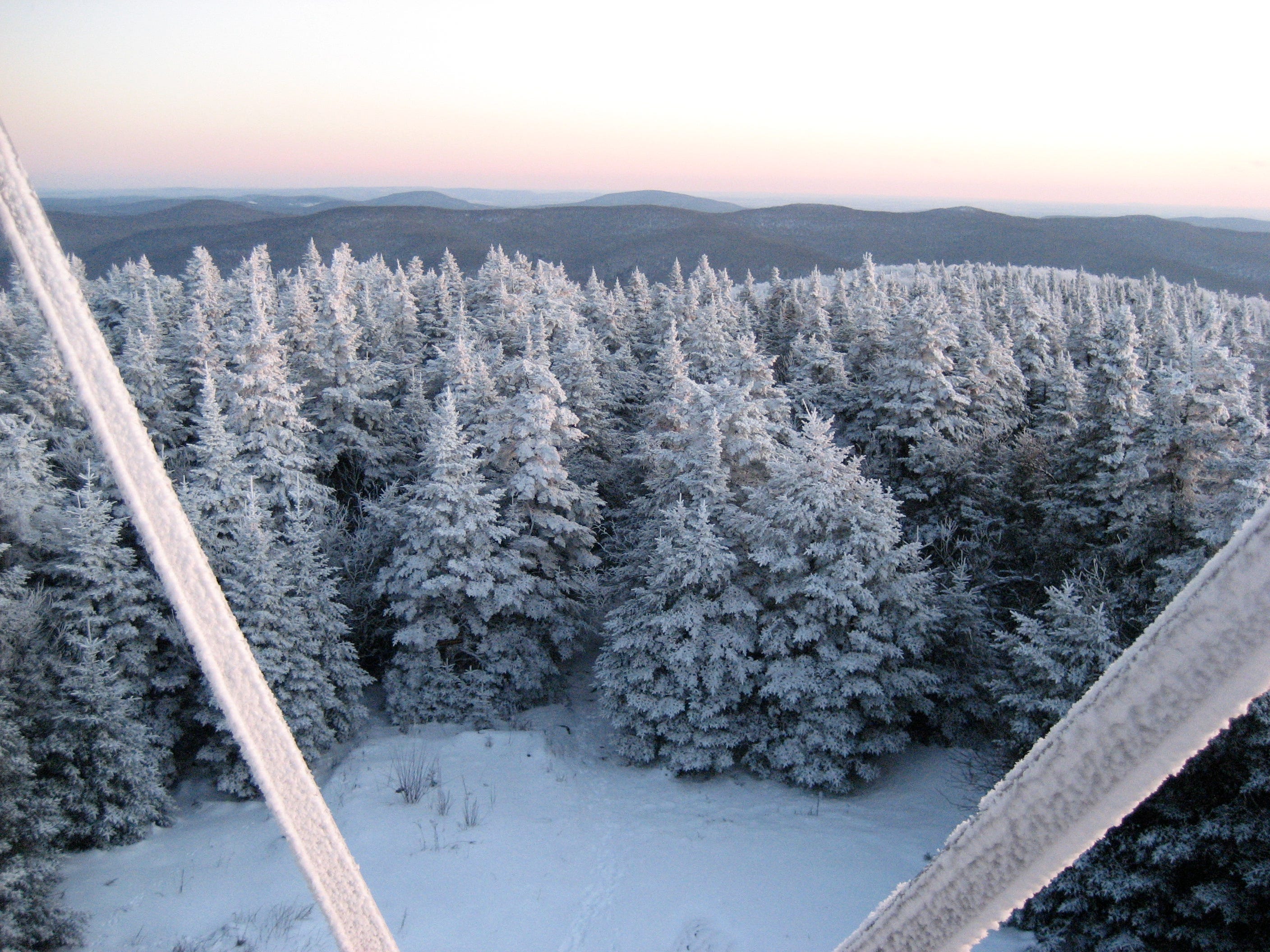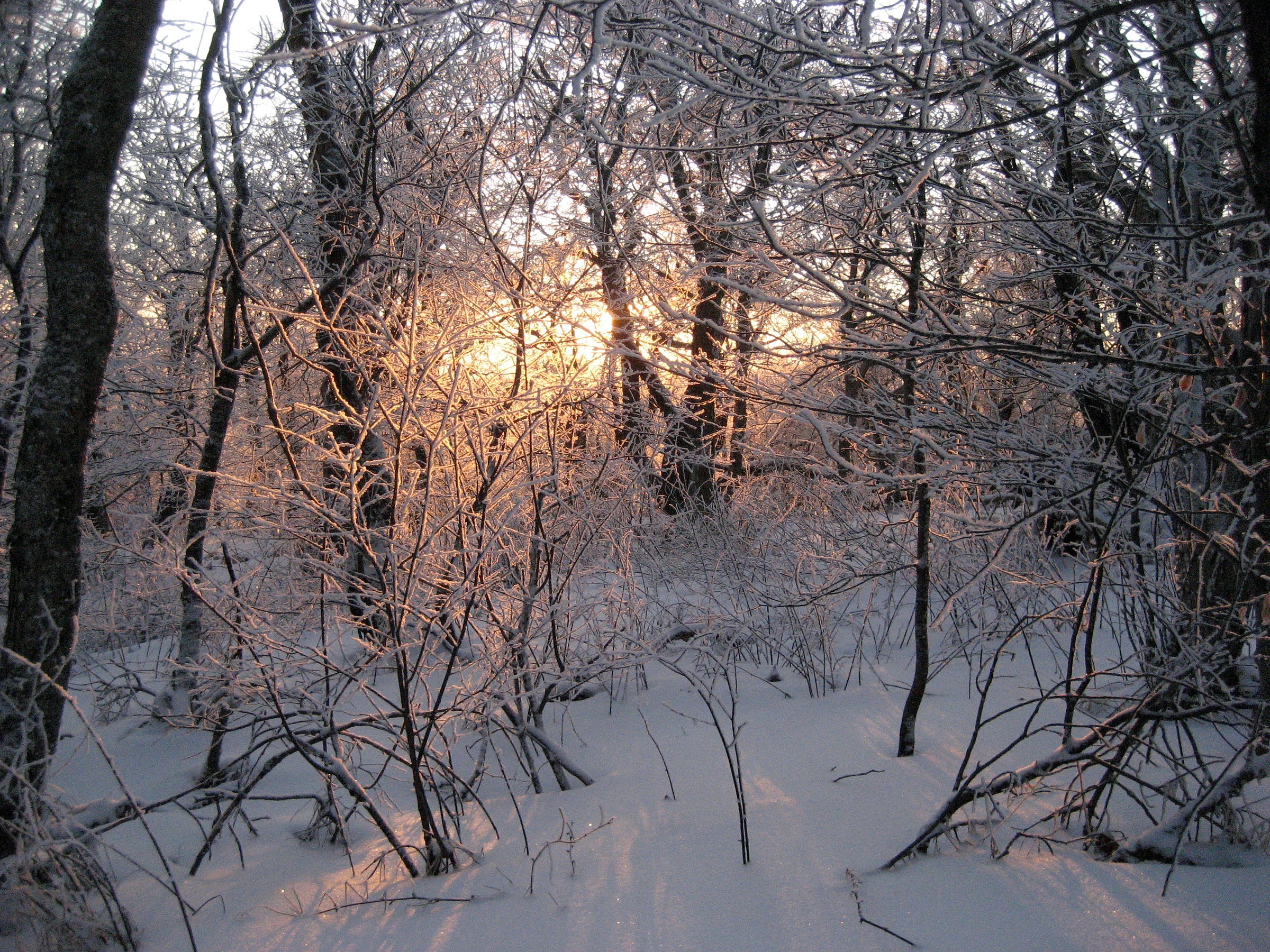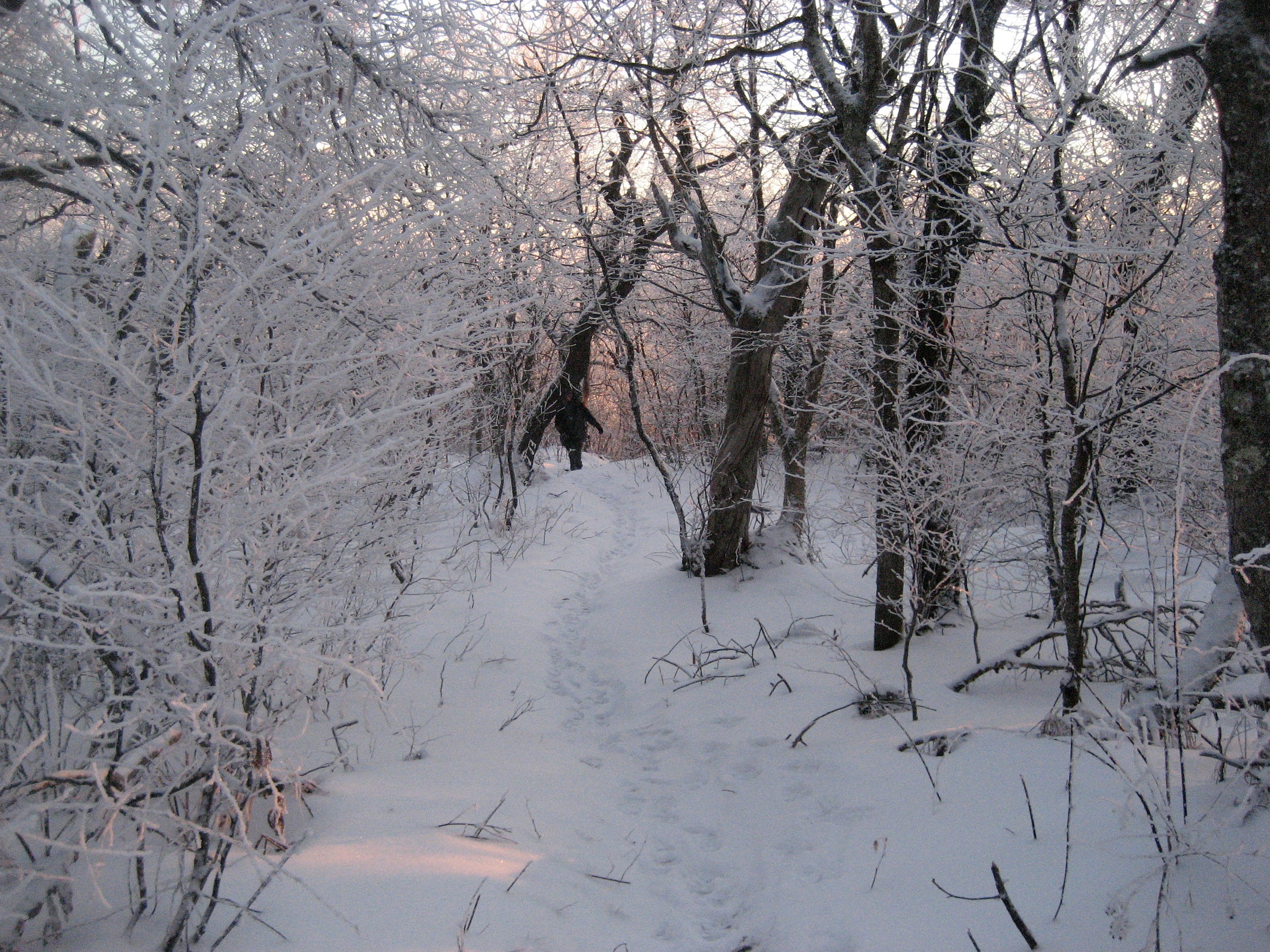"I Thought I'd Lose My Fingers to Frostbite," — Why ill-Fated Adventures Inspire Us
Today I'm sharing one of the few times when I actually thought I might perish on an adventure. Grab a warm drink to cozy up with for this one:
Of all the interviews I’ve been through, nothing has ever come close to my Eagle Scout Board of Review. Years of dedication, mastering new skills, learning leadership, and personal growth — all culminating in a singe evening of questioning. All in service of an honor I’d been chasing since I could talk.
12 years after the fact, I still remember quite a lot about the conversation. Digging my fingernails into my palms to stop myself from fidgeting; the cluttered shelves lining the conference room walls; and above all, the cold December air passing through the floor-to-ceiling windows.
Early in the interview, one committee member asked me a question I’ve written about before: “What was an outdoor experience you had, that you wish every other scout could have?”
Perhaps it was a memory plucked at random. Perhaps it was some sense of pride for what we had endured. Or perhaps it was just a case of association between the chill of the interview room, and the night I thought I’d lose my fingers to frostbite. Without missing a beat, I blurted out the same answer every last one of my crewmates would later give as well: “Balsam Lake.”
Long-time readers may remember: I’ve shared snippets of this ill-fated expedition when talking about trips that end without any kind of grand view. It’s one of the most popular essays I’ve written. So if you missed it, I highly encourage you to go back and give it a read.
In that story, I promised I would eventually share the full details of our trek. As the weather grows cold and I sit bundled up in my writing chair, this morning felt like the right time to tell the story.
I Didn’t Grasp what it Truly Meant to be Cold
The plan should have been simple. Our troop split into two crews.
Everest — the high-adventure crew training for longer thru-hikes. There were eight of us including our two adult crewmembers, myself as crew leader, and our navigator
K2 — the rest of the troop, another dozen people. This group included our more laid back older scouts, along with the less experienced new recruits, and would serve as a support team
K2 dropped off the smaller team at the red X on the left side of the map, at Alder Creek, before continuing to drive around the mountain. Their job was to park by the edge of Balsam Lake, which is right beside the yellow X on the right side of the map.
From there, they would hike a short distance to the blue triangle at the base of the Balsam Mountain Trail, establish camp for both crews.
Meanwhile: my group would be hiking around Alder Lake, across Millbrook ridge, and meeting up with the other crew at the summit of Balsam Lake Mountain. From there, it would be a theoretically easy hike back down to K2’s camp, marked by the blue triangle.
I watched the caravan of SUVs disappearing around the bend in the road. We stretched, shouldered our packs, and stepped off the road onto the trail. We entered the cover of the forest a little after noon — a full two hours behind schedule — and disappeared into another world.
Glass and crystal shaped this new realm; the previous night’s storm blasted the entire forest with freezing rain, leaving almost every tree encased in ice. Branches drooped in surreal fashion beneath the weight, making the trail feel more like a tunnel. The lower boughs brushed snow and ice chunks onto our heads.
The temperature sat at eight degrees when we started. I hardly noticed. We plodded around Alder Lake through ankle deep snow, shedding most of our winter layers as we worked up a sweat. By the time we reached the river crossing, I was down to an unzipped fleece jacket, and a t-shirt.
We broke for lunch by an old lean-to near upper Alder Creek. I found myself scrambling to put my layers back on.
When our navigator reached up to brush a rogue strand of hair away from his eyes, he called out: “I think my hair froze!”
After a few idle minutes, my toes started prickling in my boots. “We should get moving again,” I said. “We’re already way behind schedule.”
With that, we packed up our equipment once more and hit the trail, quickly warming up again.
For the next two hours or so, we pushed our pace as hard as we could. The goal was still to reach the fire tower in time to catch the sunset with the other crew. But when we saw a line of violet creep across the horizon, we knew it would be too late.
The violet faded softly into a clear, inky night. Far below the ridgeline, I watched a tangerine moon breach the horizon. The crystal trees refracted the light, making it look like they were covered in otherworldly Christmas lights.
By the time we reached the summit the mercury in my portable thermometer showed three degrees. The eight of us stood around the base of the tower — now a staircase up into the void — until someone’s growling stomach broke the silence.
“Do we break for dinner, or keep pushing to camp?” Their question hung in the air, in the whisp of steam from their breath.
“How much farther do we have?” I asked the navigator. He fumbled with the map, his gloved finger tracing a path I couldn’t see.
“A mile. Maybe a mile-and-a-half.” He said. “But it’s all downhill to the site.
I chewed my chapped lower lip. At this point, we’d been moving for hours without a break. And the cold no doubt had us burning through calories at a dangerous pace. We would be coasting into camp running on fumes. Then again, stopping would mean sacrificing our momentum and body heat.
“I think we should break for dinner,” I said. “We’re going to run out of energy to stay warm.” There were grumbles of agreement from my crewmates. One by one, we all dropped our packs.
Our trip cook set to work with our dragonfly camp stove; pressurizing the fuel canister and spreading out the thin wire legs that would support our cookware. A tongue of yellow flame leapt from the burner. I watched as my crewmate fiddled with the valve, bringing the flame back down.
As soon as I let my own backpack fall to the ground, a cold, damp sensation swept down from my shoulders to my hips. My shirt and jacket were plastered to my skin with sweat. Not good.
I tore off the wet clothing and rifled through my pack in search of my back-up jacket. Steam rose from my shoulders, taking my body heat with it. But at least I wasn’t wrapped up in damp fabric anymore. As I tugged on my pull-over and slid my hands back into their gloves, I realized the rest of the group had fallen silent.
Only the high pitched roar of the stove filled the clearing. I returned to the group, finding everyone in a tight circle around the stove, all with their hands pressed against the metal pot of water, slowly coming to a boil.
We scarfed down fettuccini alfredo that actually began to toughen and freeze mid meal. I still recall it tasting delicious — but I’m almost certain that’s just because I was starving and exhausted.
“Gotta get moving again,” I told my empty bowl, coated in a layer of white sauce. I poured in a bit of the leftover cooking water, sloshed it around, and drank the thin slurry it produced. Yum Yum Soup, we called it.
I kept fumbling the buckle on my pack as I tried to stow my meal kit. After several failed attempts, I realized why: my fingers had gone numb. I don’t just mean pins and needles or prickling; I couldn’t feel a damn thing. Panic started to creep in.
“What am I going to do?” I thought. “We’re so far from help. How am I going to get warm? Am I going to lose my fingers?” I could feel myself spiraling. While I still possessed willpower, I put my rational foot down.
“Knock it off!” I told myself. “Panic never helped anyone. What can we do to warm up?” I thought back to all the skills I learned and practiced over my years in scouting. I did jumping jacks in place to get my heart pumping while I waited for the rest of the team to gear up. Once the line of headlamps started moving through the dark once more, I wedged my hands in my armpits and trudged on through the shallow snow.
A little less than an hour later, our flashlights picked up the reflective markings of tents. Flickering light bathed the trees in a warm glow, casting long and twisted shadows through the quiet forest.
After almost eight hours on the trail, we had reached camp.
K2’s crew leader sat on a petrified log beside the dying fire. “Glad you could finally make it,” he said. One of the logs on the fire split with a crack, sending a plume of cinders wafting up into the cold night air.
I looked around the camp. “Everyone else turn in for the night?”
He nodded. “Thought I’d wait up to make sure you got in alright, though. Now you’re here—” he stood up with a groan, “—think I’ll be going to bed, too.”
Murmurs of “night,” rose from our little team as we all made our way to our assigned tents.
I must’ve spent about 15 minutes chipping ice off the bottom of my pants where they had fused with the top of my boots, before I could actually crawl into my sleeping bag for the deepest slumber of my life.
Not everyone understands why this was my go-to example of an experience I’d like everyone to have. Perhaps some will think I am a sadist, trying to inflict some frozen hell on other adventurers. But of course that’s not true.
The real reason comes from my grandfather. He brought the paperwork to sign me up for the Boy Scouts to the hospital on the day I was born. Right up until his passing, he was one of the main voices encouraging me to adventure, though he was a man of few words. Before I left home, he shared a piece of advice I thought was so important, I had to write it down.
“Remember: these things worthwhile do not come easy.”
The truth is, it’s nice to be able to test your skills against an actual challenge from time to time. There is deep satisfaction in knowing your persevered, or even survived because of your knowledge and training.
We can draw inspiration from struggles, difficulties, and danger because an easy trip doesn’t produce the same sense of accomplishment. In my interview with Jim Davidson about summiting Everest, I suggested that if you could instantly teleport to the peak, you would look down on the world and feel nothing. That’s because so much of the experience is in the journey.
In walking these difficult trails, we have an opportunity to know ourselves better.
I Want to Hear from You
It’s been a long time since I’ve shared a proper story. I’d love to hear your thoughts on this one. Am I crazy for liking the cold? Do you look back fondly on difficult experiences? Let me know by clicking the button below.
And if you enjoyed this post, consider clicking the heart, and sharing it. This really helps let me know what’s connecting with you as a reader.









That feeling of when you stop and take your pack off, and the shivers go through your whole body, ugh it still makes me swell with panic.
Wise choice for a trip you wish others could have. Wise words about the importance of struggle and accomplishment. Wise decision to write down your Grandfather’s words and reflect on them. You just know he’s proud.
Thank you for the captivating storytelling on this one..